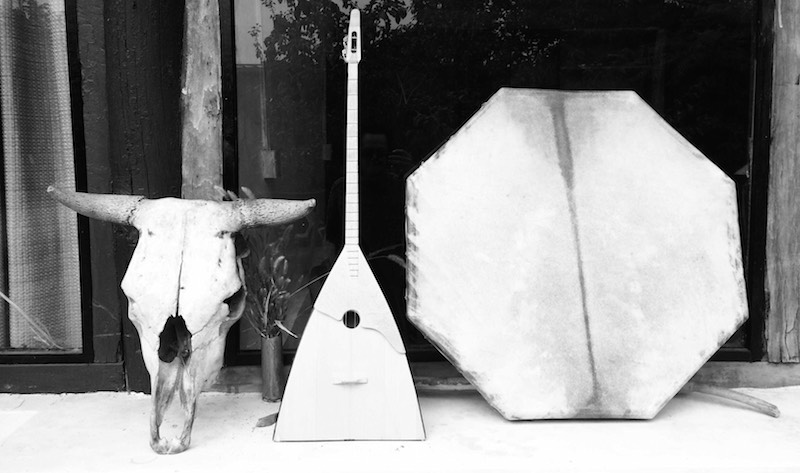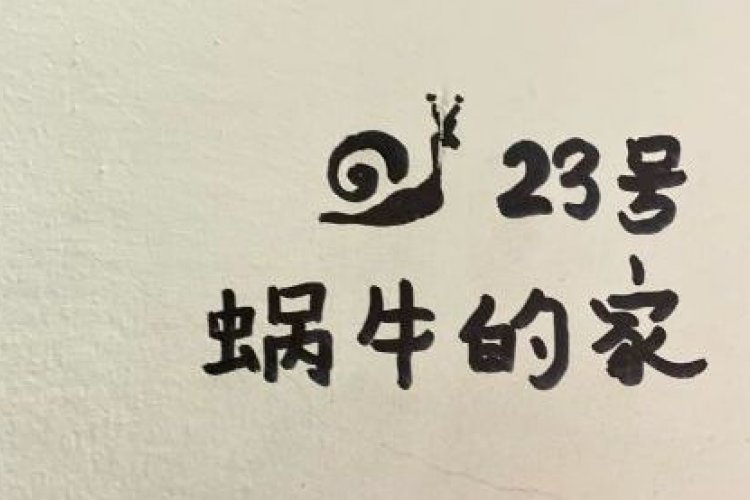"Everyone Is a Poet, Everyone Is an Angel" – Q&A With Avant-Garde Tibetan-Mongolian Troupe Atsara Ahead of Debut Gig at Jianghu, Jan 1
Ancient tradition and the avant-garde converge when the members of Atsara play. A recent promotional article about the recently formed trio (set to play Jianghu bar on Jan 1) describes them as:

Duoyan (朵颜) - Raised on the steppes of the Qinghai–Tibet Plateau, Duo Yan is a poet first and foremost with an innate grasp of avant-garde music, weaving his poetry throughout the music he plays.

Azi (阿孜亚) - A Mongolian shepherd for most of his life, Azi graces this trio with a pure voice and a deep appreciation for sharing his Mongolian culture with others.

Sangji (画梦人): Also from the steppes of the Qinghai-Tibet Plateau, Sangji recently journeyed from Xiahe to Beijing on invitation to participate in various art exhibitions and music performances.
Below, Sangji tells us more about the mysterious troupe’s origins, their spiritual creative process, and more.
Tell us about how Atsara got its start.
We formed on Oct 19. At the time there was an Atsara mask on Duoyan’s wall. Light was streaming through the window onto the yellow part of the mask and the opportunity at the time couldn’t have been more appropriate. We had been thinking about this for a long time, and finally – I don’t remember who said it first – we accepted the name fate gave us. It’s the name of a Tibetan jester mask, Atsara.
Everything seemed to come together at that very moment, and we became this band. This was the conjunction of our inner voices. Atsara is a character in Tibetan religious dance dramas that is dressed like a clown or jester. But the name Atsara originally comes from India. It can be translated as many different meanings including an ascetic monk (Sadu), yogi, wandering dervish, beggar, or teacher.

How would you describe yourselves?
Azi is a long tone singer from the grasslands of Inner Mongolia and sings; Duoyan is a poet from the Qinghai Tibet Plateau; and Sangji Gyatso is a dream painter also from the steppes of the Qinghai Tibet Plateau.
Azi is an excellent craftsman of handmade instruments. Duoyan is a poet with a deep understanding and research into sound healing therapy. Sangji is an artist. Each member has interests and abilities in other areas; we all write poetry, paint and draw, do tattoos, make instruments, travel, go on adventures, and practice the Dharma.

What should we expect from your Jianghu show?
This is our band’s first performance. As we are getting familiar with each other we hope to bring a warmth as well as a type of nostalgic sadness, thus discovering the type of quiet beauty music can bring to our hearts.
Tells us more about your sound.
We use ancient instruments and traditional sounds to create music that helps us practice the Dharma. Of course we don’t really feel that we have one specific style or sound we are going for but our music is something like folk music.
We see Atsara as a clown or jester practicing the Dharma, a wandering yogi. His blood is an internal river, his heart has a steady drum beat, and his breath is the wind’s silent song. The music of Atsara was not created; instead it is quietly experienced and discovered over and again at the source of life. We discover that river, that drum, that wind. We discover that mystery of awakened life. Everyone is a poet, everyone is an angel.
Atsara will perform at Jianghu on Jan 1 at 9pm. Tickets are RMB 60 at the door. For more information, click here.

More stories by this author here.
Email: kylemullin@truerun.com
Twitter: @MulKyle
Instagram: mullin.kyle
Photos courtesy of the band


